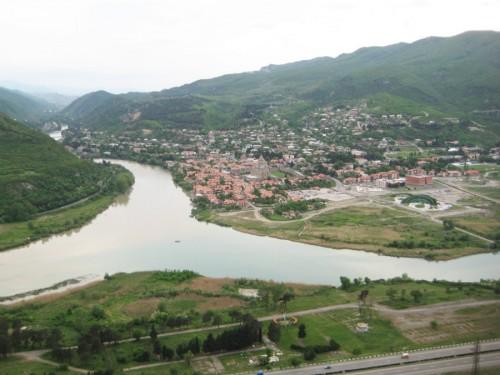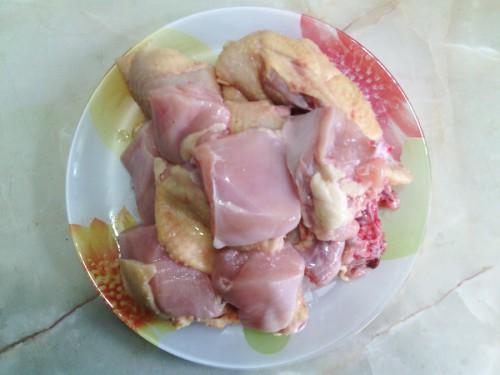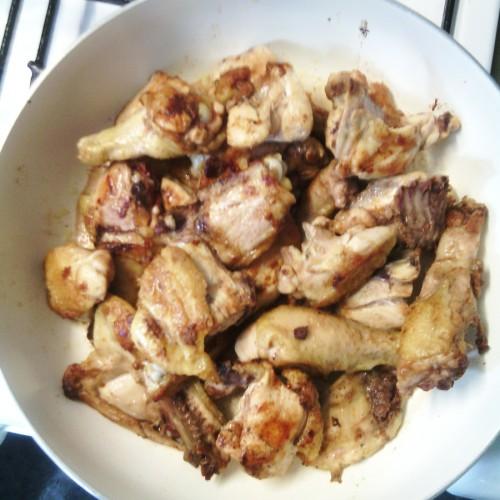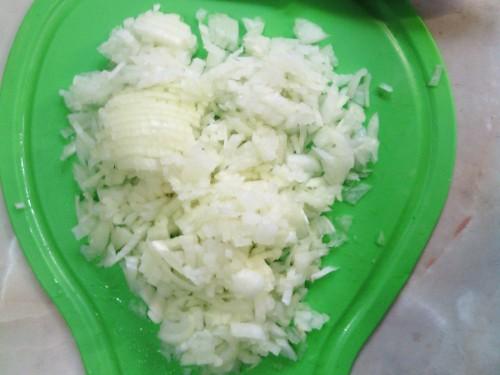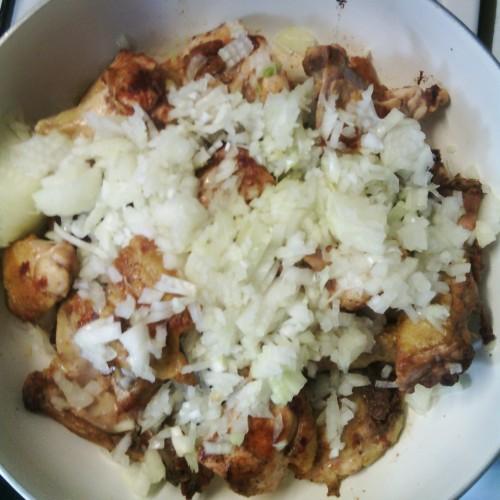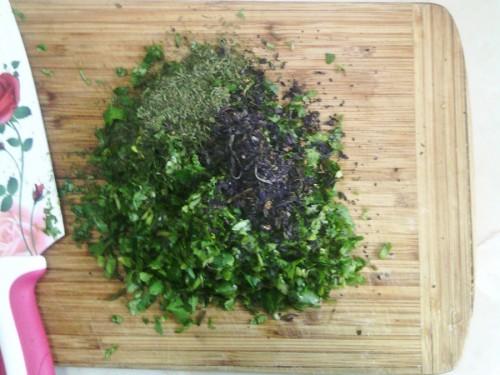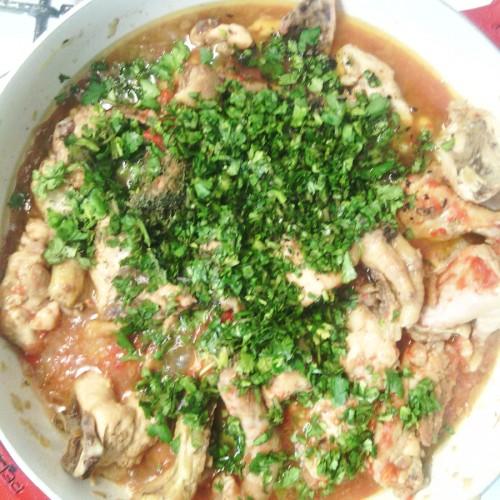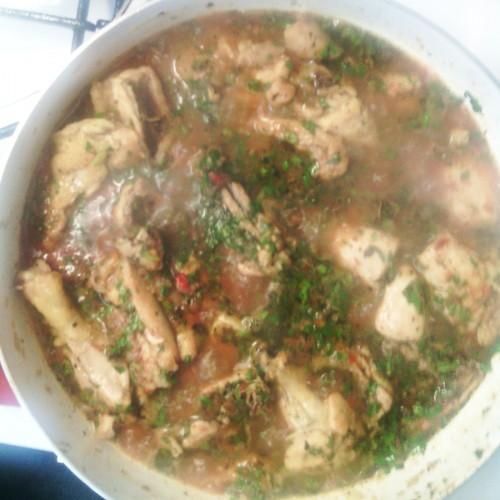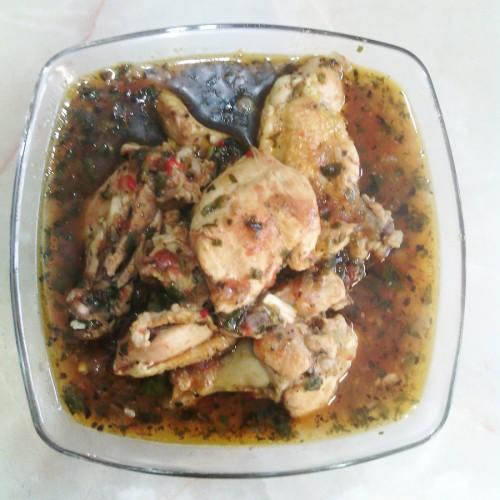The content of the article
About the old capital
The historical memory of the people and the oral chronicle of the country are categories that help small nations preserve their culture, identity and traditions. The concepts are abstract, but the struggle with assimilation is obvious and is not lost among the Caucasian peoples. This thought came to me for the following reason. Mentioning the city of Mtskheta, Georgians invariably emphasized that it was the former capital. She naively believed that the events were two hundred to three hundred years old. Nothing like this. It turns out that Mtskheta - the capital - only until the 5th century AD. Georgians talk about it as if they heard about that time from their grandmothers. The respectful attitude to my own story was emphasized in every story and story. As if the line between the past and the present has been erased, they are involved in the most ancient events of the country. I think that Georgians are unique.
Or maybe nature itself helps them? For example, the view of Mtskheta from a tall mountain (by the way, the VI century temple of Jvari is located there) is simply breathtaking. The city was built at the confluence of two colorful rivers. And every Georgian knows the romantic lines of the Russian poet M. Yu. Lermontov:
“Where, merging, they make noise,
Hugging like two sisters
Jet Aragvi and Chickens ... "
About Tiflis
I love the place where the Turkish baths are located. So they are called only by Russians, because there are no Turks there at all. Just Muslim domes, painted buildings and the very structure of the baths are purely Turkish.
And the place around them is very interesting: narrow streets stretch high into the mountains, old houses with elegant balconies, fight for every meter of land and stand close to each other. From afar, they merge into a single, chaotic line and look like a cartoon train with colorful cars. It’s pretty hard to go, as the climb is too steep. Here, nearby are Georgian, Jewish and Armenian churches. This speaks of the many faiths that have inhabited the city since ancient times.
In fact, Tbilisi originates from here and begins its development. And all Georgians know and remember this. In a cozy square near the baths there is a small symbol - a stone bird. The history of the creation of the city is connected with it. According to legend, King Vakhtang I Gorgasali on a hunt shot a johby bird. Dogs brought him prey - it was warm. A black bird fell into a sulfur spring that beat out of the ground. Vakhtang Gorgasali decided to found a city on this place and call it Tbilisi (“tpili” - warm).
The location of the city is very favorable: it was at the crossroads of important trade routes. People came here to the bazaar (bazaar) from Azerbaijan, Iran, Turkey, Armenia, Russia. Many peoples could not pronounce a specific, labial sound: a cross between “b” and “f”, and the name of the capital was distorted over time. Tiflis - this is what foreigners called the city.
Just where the sulfur springs hit, now public baths are built. And nearby, on top of the mountain, there is a monument to Vakhtang Gorgasali, he is depicted as a warrior rider on a mighty horse.
About toasts
In Georgia, toasts are taken very seriously, this is a kind of table ritual, in each company, family, and circle, they are all strictly numbered. You can’t just drink, you can’t talk briefly, you can’t interrupt the host. In general, there are a lot of unwritten conventions.
To be a host in Georgia is an honor and responsibility. I think it’s impossible to learn this. It is necessary to subtly feel the people around, the atmosphere of the feast, select the right words, weave them into the outline of the general conversation, pick up the thread of the conversation, react quickly and improvise on the go, and, of course, drink it yourself. Not everyone can survive 10-11 compulsory toasts (the wine is intoxicated there).
Georgians laugh when I say that in Russia the host is a hired man who pre-develops a script, selects music, etc. And then receives a lot of reward for this. Caucasians do not understand this, and sometimes it seemed to me that they simply did not believe. Their toasts are not reading poetry on paper, not a reprinted script produced on the Internet. I would give this definition: Georgian toast is a spontaneous, sensual, emotional state of a particular person embodied in speech. It should be noted that almost all Georgians can be a host, this is part of their culture. By the way, the word "host" came to us from the Georgian language. It is amazing that the host of Georgia in Georgia is chosen for different feasts: birthdays, weddings, guest arrivals, successful bargains and, what struck me especially, even for funeral ceremonies (there are 7 or 9 toasts required and one type of wine is selected for this case and very strong )
At the festive table, the first toast is always for peace. Then - for the Motherland, one by one, depending on the situation, raise glasses for the parents, the happiness of the children, for those gathered, etc. Be sure to make a toast to the deceased, then clink glasses and drink as if they were living. They explain it this way: while we are in this world, our memory of those who are no longer in this world is still alive.
In my case, there have always been touching words for the friendship of Russians and Georgians, for two countries and their joint future. The last toast is usually thanksgiving to God.
The pulsating, noisy, extended feast of Georgians is a whole kaleidoscope of paintings, mood swings, songs and dances, inimitable dishes and an incredible wave of warmth and responsiveness.
About polyphony
Once we got to one amazing feast. My friend brought me to a Tbilisi music school. A large company (mainly male) gathered there at a large hospitable table. Tamada - Honored Worker of Culture of Georgia, composer David Kevlishvili. He knew his job, was unusually charming, interesting, agile. He spoke quickly and energetically both in Georgian and in Russian, joked, poured jokes, he laughed, infecting everyone with his mood. And he managed to wonder if I understand him.
In his youth, he worked in Moscow as a musician, so he knew an incredible number of songs, both native and Russian. He played on everything that made a musical sound. When the feast began to rise, he began to sing. His repertoire included urban and ancient romances, national Georgian songs, chanson, songs by Russian composers and even ditties. At some point, others began to sing along with him.
I emphasize that singing in Georgia is usually exclusively a male occupation. I have never heard women sing. Once I tried it myself, but they pointed out to me with shame falsehood - singing men will not stand on ceremony. Georgian polyphony is a special voice technique using close tones. The standard song in Georgia is performed mainly on three voices. And then, at that feast, for the first time I heard acapella three-voice. The three men who met for the first time in their lives sang as if they were rehearsing daily and touring with a certain clear repertoire. By the way, these were three David (or Dato - abbr.). One of them in childhood, in one thread, learned to play the cello with Soso Pavliashvili. And friends, who were well-meaningful, immediately christened the trio, consonant with their names: “Sami Datvebi” (Three Bears). Many at the table were impressed with this singing, (what can I say about me!)
By the way, Tbilisi guys are a special category of Georgians. They experience an incredible love for their city, its atmosphere, preserved from the last century, the romantic mood of the capital, a slightly relaxed southern rhythm. All this is reflected in their song. It is noteworthy that in 2001, UNESCO recognized the Georgian song as a masterpiece of oral intangible heritage.
At that musical feast, I tried chakhokhbili. Today, my Tbilisi friend offers a recipe for this national dish.
Chakhokhbili from Alena Vatiashvili
The name of the dish comes from the Georgian word "Khokhobi" - pheasant. This is the national bird of Georgia, from which it was originally made chakhokhbili. The recipe then spread throughout the Caucasus. Getting a pheasant is quite difficult, so we will cook chakhokhbili from chicken.
We will need:
- 1 medium sized chicken;
- 3 onions;
- 1 tbsp. l butter;
- greens: parsley, cilantro, oregano;
- 2 tbsp. l of tomato paste or 0.5 l of lecho from tomatoes and bell pepper;
- salt;
- bitter and Bulgarian peppers;
- 2 cloves of garlic.
Cooking
Cut the chicken into pieces, wash, salt and pepper.
In a frying pan we heat the butter and fry the meat from all sides until half ready.
Finely chop the onion.
Mix it with meat and continue to simmer over medium heat.
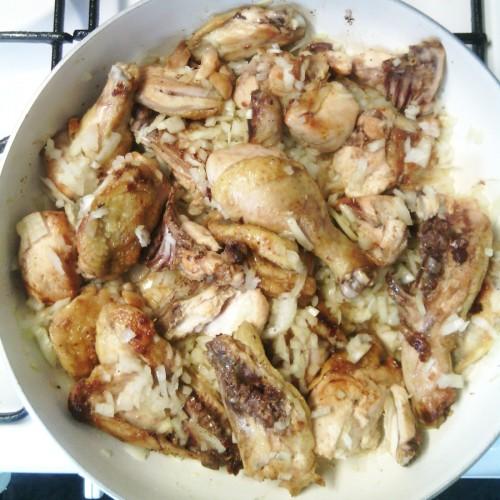
After 10 minutes, add 250 ml of boiled water or chicken stock, cover with a lid and simmer for another 15 minutes. Do not forget to stir.
Then add 2 tbsp. tablespoons of tomato paste with chopped bell pepper and add 750 ml of water. But it turns out tastier if you use 0.5 l of finished lecho.
We fall asleep greens and simmer another 15 minutes.
Five minutes before cooking, add finely chopped garlic.
We spread it on a dish.
Chakhokhbili eat hot. It can be served with a side dish - potatoes or pasta.
- Gemrielad is mivert! - Enjoy your meal!
